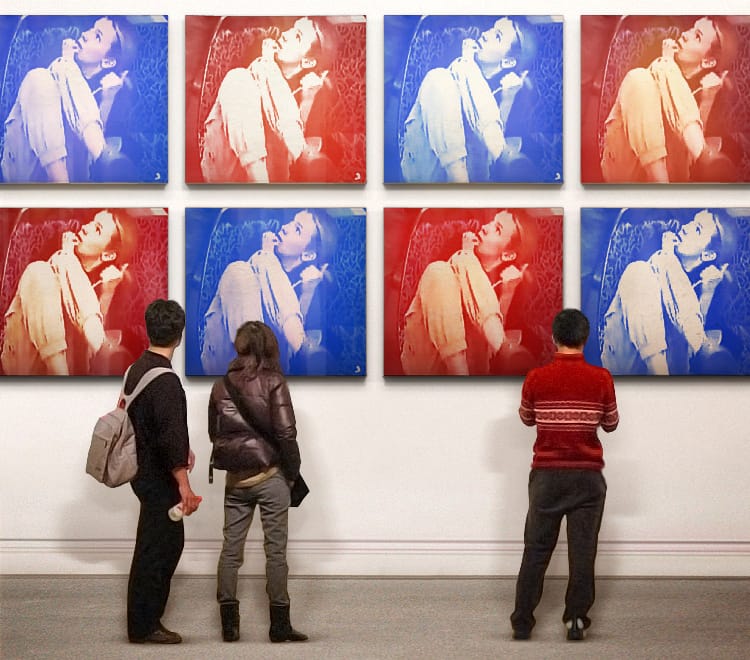Empathy is not the Enemy
What could AI – the superintelligence – do to us that we have not already done to ourselves?

The world once worked in mysterious ways, but it seems to be far less mysterious now. Yesterday’s undercurrents have become today’s ubiquitous waves. Lust. Greed. Envy. Sloth. Pride. Gluttony. Wrath. They drive our algorithms. And they generate followership. It puts those who drive such content on the highest pedestals. It desensitizes all to what should shock our conscience. Instead, we engage as if the weightiest subjects are but petty squabbles to score a point with our tribe.
As blood came gushing out of the neck of political activist Charlie Kirk after he was shot in Utah on Wednesday, it was but one more image in our feeds. The digitization of violence has removed any veneer of reality. Scroll up. Next. Child dead in Gaza. Scroll up. Next. Ukrainian refugee dead in North Carolina. Scroll up. Next.
The endless scroll dehumanizes what we see, but mostly it dehumanizes us. What could AI – the superintelligence – do to us that we have not already done to ourselves? Sedated, we sit behind our screens, cheering the horror done to our supposed enemies. It allows us to equivocate easily when we see something wrong.
Sometimes when I’m riding the subway in New York, a young child comes up to sell nuts, chocolates, and other small items. One of many migrants who had crossed the border. Millions, in fact. The ‘system’ has lost track of hundreds of thousands of unaccompanied children who have made that journey. Is that child one of them? Who is taking care of him? Such questions are often avoided if they do not fit our political agenda.
Political debates on issues or events have a jarring disregard for human life and the human beings at the center. The story of Jeffrey Epstein is not at its core about Donald Trump or Bill Clinton. Of course, there are notions of power and the elite; this must be disentangled. Yet, it is foremost about the women, trafficked from around the world.
I wonder if, when people sought to dismiss the conspiracy theories surrounding Epstein, they gave a thought to the countless women over decades ensnared by this criminal network. Where are they now? Who is looking for them? Are they okay? Instead, the debate online turns to far-right conspiracy theories yesterday and left-wing hoaxes today. Humanity is lost. The vulnerability of the victim stripped away. And human trafficking, whether by Epstein in the past or human smugglers at present, becomes taboo to raise when the entire discussion is politicized and subsumed by the algorithm.
For too many, victims are not people. They are digitized images. Is Iryna Zarutska real? Can a white woman be a victim in our modern social construct? The conversation transforms from shock in the face of an act of brutality to a debate about white supremacy and the exploitation of victims to promote agendas. Maybe, just maybe, it is worth appreciating the innocence lost of a defenseless young woman.
Two years on from the events of October 7, death has become a norm for too many young people in our world as the first thing they see as they open an app, whether it is X, Instagram, or TikTok. Was there a Hamas member in the hospital? Did she not serve in the IDF two years ago? Aha! Israel was justified in striking that house! Hamas should have targeted the rave! Like. Share. Am Yisrael Chai. Globalize the Intifada.
Even if any of that reasoning was true, which it is not, should we not mourn the loss of life from the other side? What happened to us that we have so radicalized that we fail to appreciate the living, breathing souls that share this fragile planet with us? To wage wars, enforce law and order, or fight for justice, there will be necessary actions, at least in the eyes of some, that result in terrible consequences, including death. But that should not mean we must neglect – much less celebrate – death.
As we descend further into our ethno-political tribal future, the biggest threat to our common fate is not the other side but the collective loss of empathy. Our inability to see others as human, like ourselves, will cause us far more harm than any external force could impose.
If we lose our sense of humanity, then who are we? There is not much time left. Can we fight it?
It is perhaps the defining question of our age.
